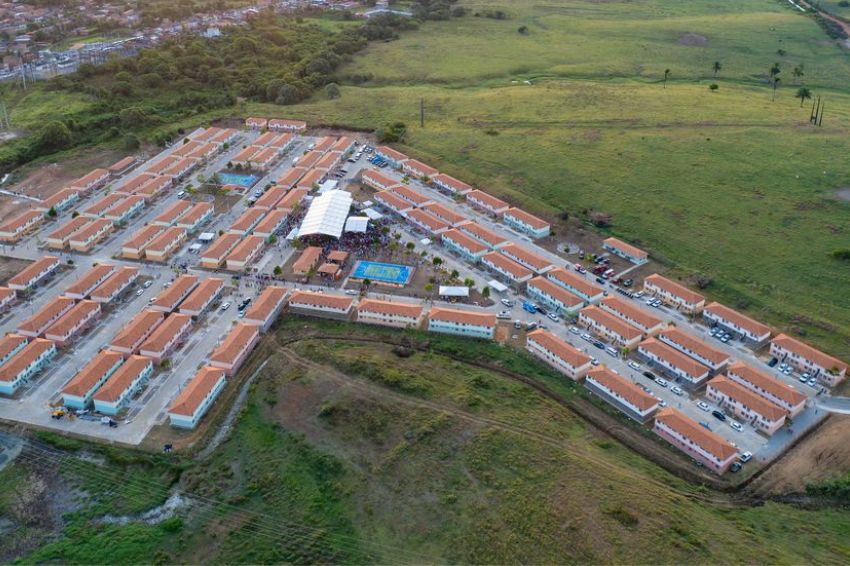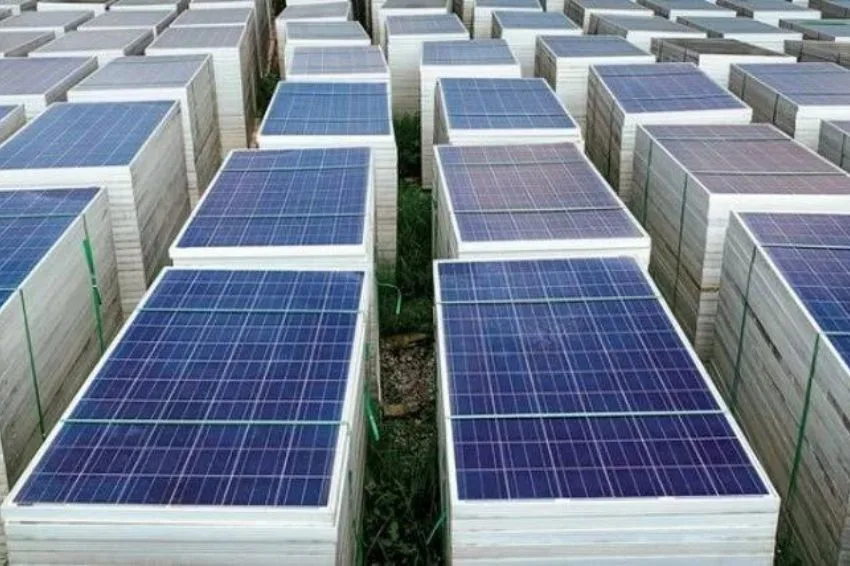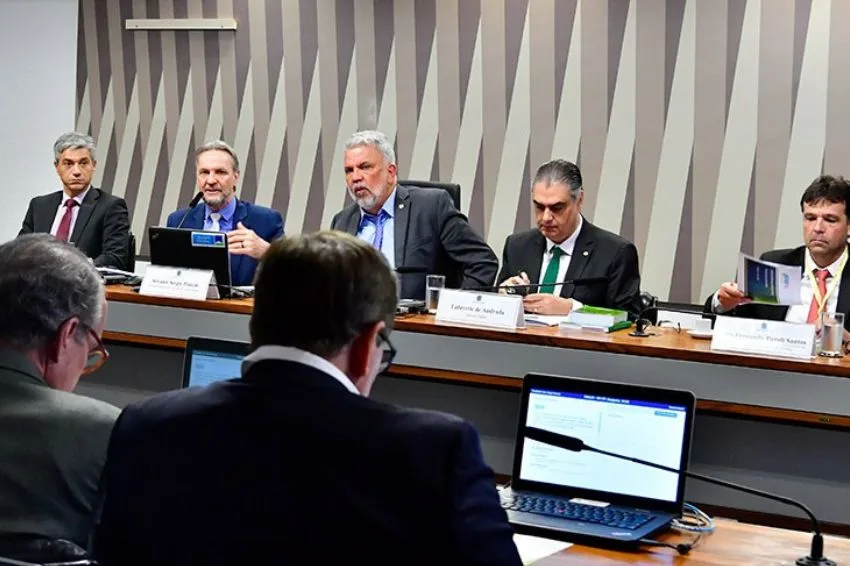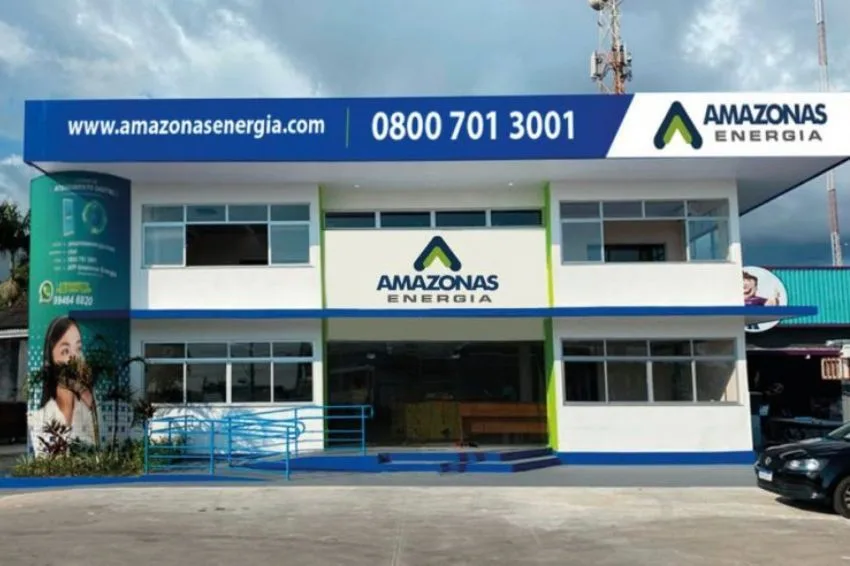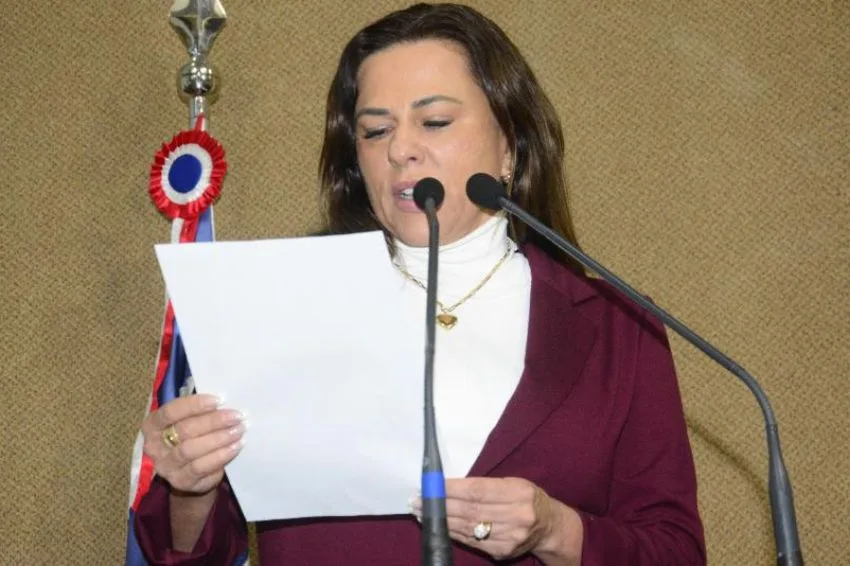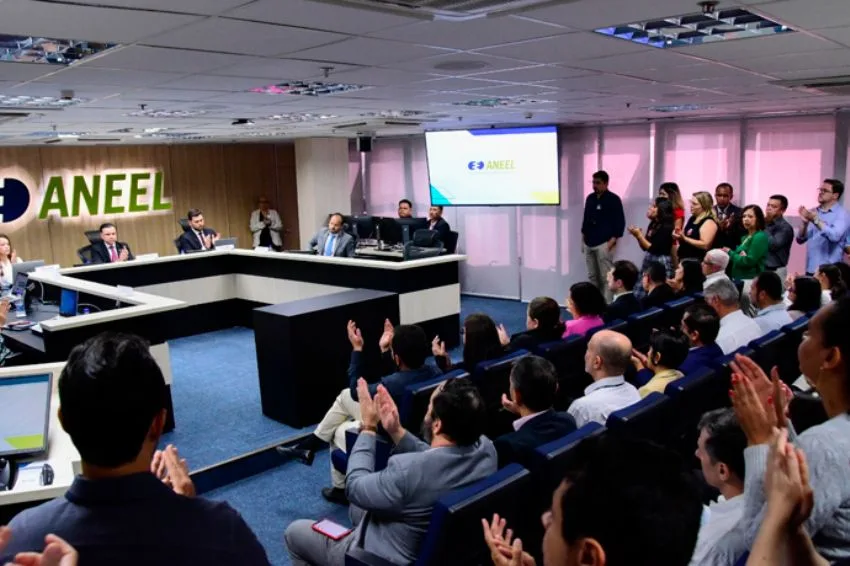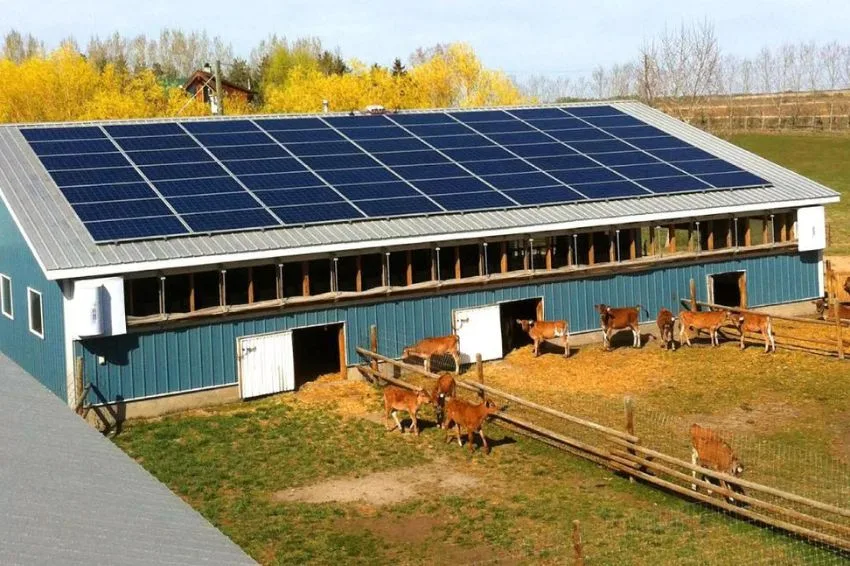A Law 14,620/2023, which provides for the resumption of My Home, My Life Program, was sanctioned this Thursday (13) by President Luiz Inácio Lula da Silva (PT) and published in the DOU (Official Gazette of the Union) this Friday (14).
Yesterday (13) the Minister of Cities, Jader Filho, had said in an interview with G1 that “'the issue of solar energy was one of the vetoes that took place”.
However, in interview with Canal Solar, Adalberto Maluf, national secretary of the Urban Environment and Environmental Quality, clarified that the Federal Government was willing to veto solar energy in the resumption of the Minha Casa, Minha Vida program, but reversed its decision.
“In relation to Minha Casa, Minha Vida, there really was this first government willingness to veto both article 37 and article 38 of the Minha Casa, Minha Vida MP. However, after the intervention of the Ministry of the Environment together with the other ministries, the Ministry of the Environment obtained support so that article 38 – the reduction of 50% in the cost of availability – was not vetoed, which in the eyes of the MMA, would be more important to ensure that the neediest populations can also generate energy for themselves. Therefore, there was a commitment from the government not to veto article 38”, reported Maluf.
Law 14,620/2023 vetoed article 37, on the acquisition of surpluses without bidding, and an excerpt from article 38, on the mandatory purchase of surpluses by concessionaires. The obligation had been included by the National Congress during the processing of the MP that dealt with the resumption of the program.
The section of article 38 that deals with the minimum reduction of 50% in the cost of availability for consumers registered in the Single Registry who are in the compensation system was sanctioned and is in law. (See image below).
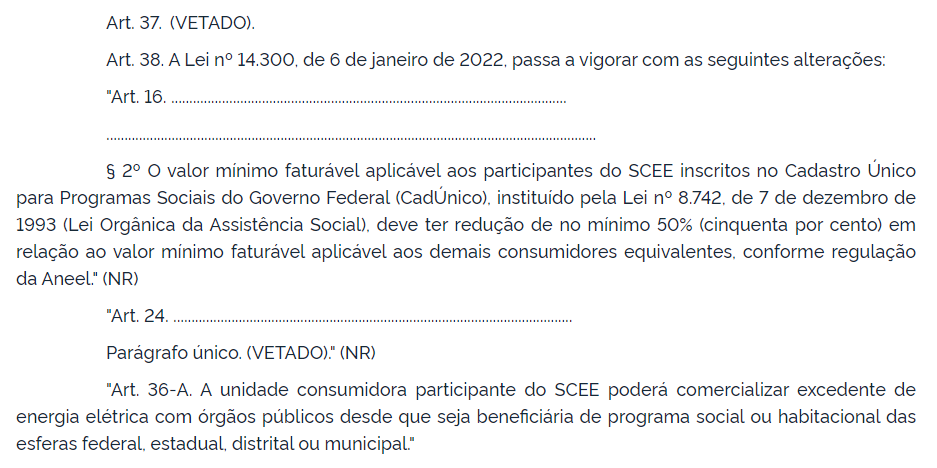
Repercussion
“Inel (National Institute of Clean and Sustainable Energy) celebrates the presidential sanction of Solar Energy in the MCMV (My House My Life Program), mainly the discount of 50% in relation to the minimum billable value for beneficiaries who are in CadÚnico and are part of the compensation system. This will open new horizons so that the poorest can enjoy solar energy on their roofs”, he stated Tássio Barboza, deputy secretary of Solar Energy at Inel and master in solar energy.
According to Barboza, the law also provides for solar generation to be included in the program's budget, which will also subsidize the training of local leaders for the operation and maintenance of photovoltaic systems, which is very positive for local communities and the country. “Inel’s team was together with the MSL and the Revolusolar from the beginning in this fight for democratization of solar energy at MCMV”, he highlighted.
For Hewerton Martins, president of Movimento Solar Livre, Law 14,620 comes to update the Minha Casa, Minha Vida program at its foundations, providing faster and more complete access to families who need it most.
“Articles 4 and 5 of the new law include, in addition to the use of self-generation technology for new housing units, it also includes solar energy for retrofitting, renovation and requalification of properties in urban and rural areas with low interest rates”, highlighted Martins .
He also highlighted that an important point provided for in article 13 of the law is the feasibility of investment and also the cost of the operation for public, educational, cultural, sanitation and infrastructure equipment, including the installation of photovoltaic solar energy equipment as provided for in the regulations of law 14,300 aiming to reduce energy consumption in real estate units.
“Still in article 13, item 9, the law contemplates generation modalities through a consortium, cooperative, civil condominium, building or civil association constituted by the leaders of the location where the photovoltaic systems are implemented. This model will encourage training subsidized by the program MCMV for local leaders to operate and maintain local or remote photovoltaic systems”, emphasized Martins.
In this way, the program, in addition to bringing cheap energy to the population, will also encourage education and the creation of new green jobs. “The permanence of article 36 is the beginning of understanding how the State and Society (organized communities) can contribute to a common good. The State in all its spheres – federal, state or municipal – needs energy in its public buildings and communities can generate energy and sell it, obtaining their own income and in addition to energy and financial self-sufficiency”, he concluded.
“Another very important point was the provision of training for local community leaders to operate, maintain and administer the systems, generating this sense of belonging and local autonomy. This is a great lesson learned from Revolusolar's pilot projects that was incorporated into the program, thanks to the sector's demands and will lead to greater sustainability of this solution”, added Eduardo Avila, executive director of Revolusolar.


